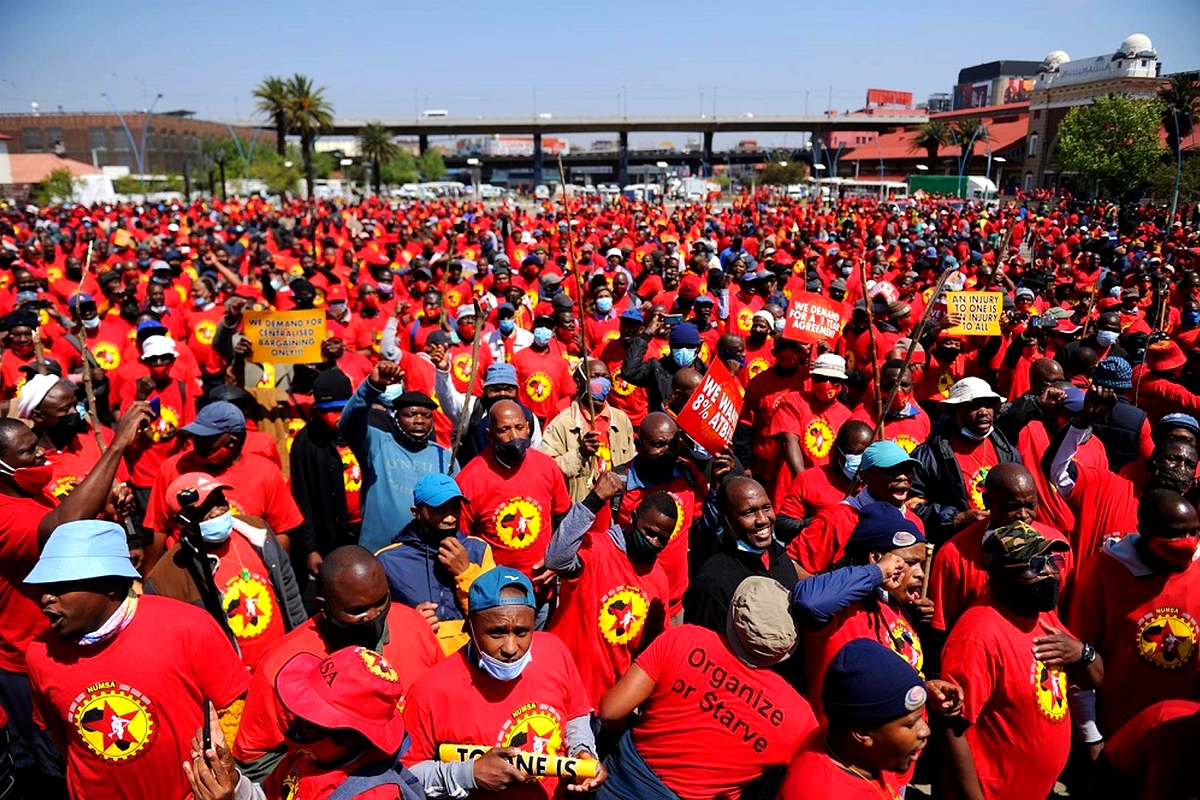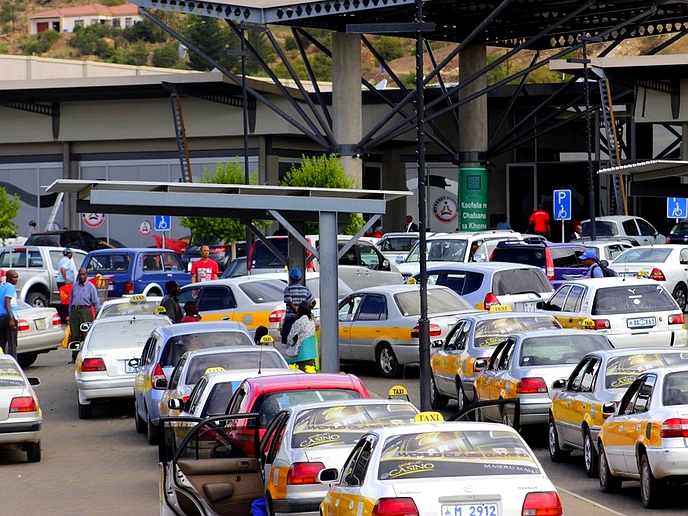SOUTH Africa’s economy faces severe headwinds in the coming weeks as load shedding intensifies, unions threaten to shut down industries, and the Reserve Bank looks set to hike interest rates.
business
Sept. 19, 2022
OWN CORRESPONDENT
4 min read
Triple-blow for South Africa this week

Members of NUMSA
Story highlights
The country is gearing up for what could be unprecedented levels of load shedding this week after failures at numerous power stations this weekend forced power utility Eskom to implement stage 6 load shedding.
Economists at the Bureau for Economic Research (BER) said in a note on Monday that the power failures, along with around 7 200MW of capacity being taken offline for planned maintenance, means that half of Eskom’s total generation capacity was offline.
“Although the expectation is that several coal-generation units should be brought back online in the next day or two, high levels of load-shedding are likely for the rest of the week,” it said.
As was seen with the second quarter GDP data, the impact of load shedding on the economy is devastating. The BER added that this current round of blackouts is likely to do the same with the third quarter output.
“The intensity of the current power cuts threatens the GDP recovery from the 0.7% q-o-q contraction experienced in 2022Q2. It also serves as another reminder of the urgency to fast-track increased private sector power generation, including securing funding for this,” the bureau said.
But this is not the only thing threatening the country’s economic prospects.
The National Union of Metalworkers of SA (Numsa) announced that it expects a strike certicate to be issued this week, the BER said, which will have a huge impact on the automotive sector if it proceeds.
Numsa is demanding a 12% wage increase from employers in the motor sector who have offered increases of between 3% and 4%.
“The date of the strike has not been confirmed. However, in the meantime, members are said to be mobilising all over the country for a total shutdown of the automotive sector,” the BER said.
Strike action over wages is a key pressure point for the economy because rising wage demand drives interest rates higher.
Markets, economists, and analysts will be looking to central banks this week for the next moves on interest rates – with the South African Reserve Bank expected to follow the global trend by hiking rates again.
Expectations are for a 75 basis interest rate hike on Thursday – though the BER said that it wouldn’t be surprising if a 100bps move is mentioned by the Monetary Policy Committee (MPC).
“Along with the majority of forecasters in the pre-meeting polls conducted last week, we expect a 75bps move by the SARB MPC. The sustained aggressive monetary policy stance by advanced central banks, notably the Fed and the European Central Bank, is an important reason why we expect the SARB to continue with a more aggressive policy stance,” it said.
“In addition, there has been confirmation of rising domestic wage pressures since the MPC’s previous meeting in July. With this in mind, another 75bps hike seems justified. In fact, it would not surprise us if we again see at least one MPC member favouring a 100bps move at this week’s meeting.”
Higher interest rates will add pressure to households carrying debt.
While the local economy is expected to struggle in the near term, the BER said there are some bright spots.
Enjoy our daily newsletter from today
Access exclusive newsletters, along with previews of new media releases.
South Africa’s consumer inflation figures for August are due on Wednesday (21 September), and economists anticipate that the figure will be slightly lower than before.
After rising to 7.8% y-o-y in July, the BER expects the annual headline CPI inflation rate to moderate to 7.3%, largely thanks to lower fuel prices which came into effect at the start of the month.
Petrol was down by R1.32/litre and diesel by 88c per litre costs during the month. This is expected to also temper food prices, with the BER anticipating some heat off food price inflation.
“We expect some of this as the oils and fat category likely stabilised in August after hefty increases in recent months. Anecdotally, there are indications that meat prices may also have stabilised, for now,” it said.
Adding to the good news, the petrol price looks set to come down by R1.24 per litre in October, according to data from the Central Energy Fund. However, the positive spin doesn’t carry over to diesel, which looks to be going up by as much as 50c per litre.
High diesel prices will have a knock-on effect on the freight and transport industries, which might put pressure on food price inflation once again. - BusinessTech
Tailored for you






